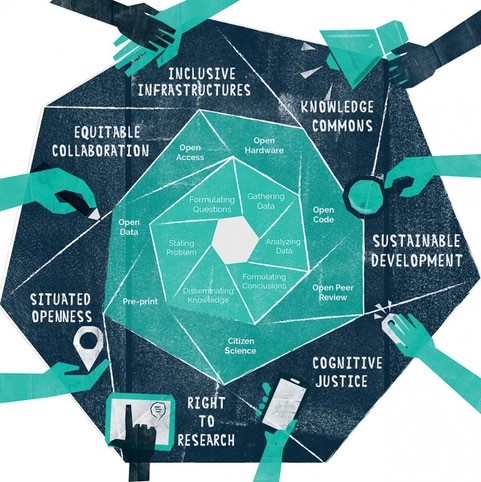Please note the short feedback time of November 30 for individual comments on the Community of Practice Statement discussed below. Please contact Libby for more extended conversations.
Background on the UNESCO Recommendation on Open Science
At the 40th session of the UNESCO general conference, held in October 2019, 193 Member States charged UNESCO with developing an international standard-setting agenda for open science in the form of a legally binding Recommendation. The goal of the Recommendation is to “define shared values and principles for Open Science, and identify concrete measures on Open Access and Open Data, with proposals to bring citizens closer to science and commitments to facilitate the production and dissemination of scientific knowledge around the world.” In total, 14 input papers from organizations including the African Open Science Platform (AOSP), Committee on Data for Science and Technology (CODATA), and CS & OS COP (Short Paper on Global Perspectives on Citizen Science and Open Science) were taken into consideration and published on the UNESCO website.

The CS & OS CoP Statement – feedback on the 1st draft UNESCO Recommendation
The Citizen Science & Open Science Community of Practice (CoP) was formed earlier in 2020 under the Citizen Science Global Partnership as a response to the UNESCO process of formulating a Recommendation on Open Science. The CS & OS CoP intends to seize the opportunity to establish Citizen Science as an essential element of a global perspective of Open Science.
The Citizen Science & Open Science CoP is preparing a Statement on the 1st Draft UNESCO Recommendation on Open Science. The draft Statement will be open for comments and inputs, until 30 November 2020, with the aim of submitting the consolidated version to UNESCO by mid-December. We are aiming for an overall length of about two A4 pages to communicate the main points of feedback on the draft UNESCO Recommendation.
We very much welcome comments from practitioners of Citizen Science and / or Open Science, so please feel free to share this invitation to contribute to the CoP Statement within your networks, associations or contacts, as you deem appropriate.
To contribute to the CS & OS CoP Statement, please sign up as a member of the CS & OS Community of Practice (because we need your consent to use your email for giving you access to the documents). Information on the CS & OS CoP (under the Citizen Science Global Partnership), including how to sign up is here: http://citizenscienceglobal.org/projects.html#csos
If you are in Australia and would like to discuss how we might maximise the benefits to citizen science from this Recommendation, please contact Libby Hepburn (libby@atlasoflife.org.au)
Kind regards,
Uta Wehn, Claudia Claudia Göbel & Libby Hepburn
CS & OS CoP Co-Chairs
